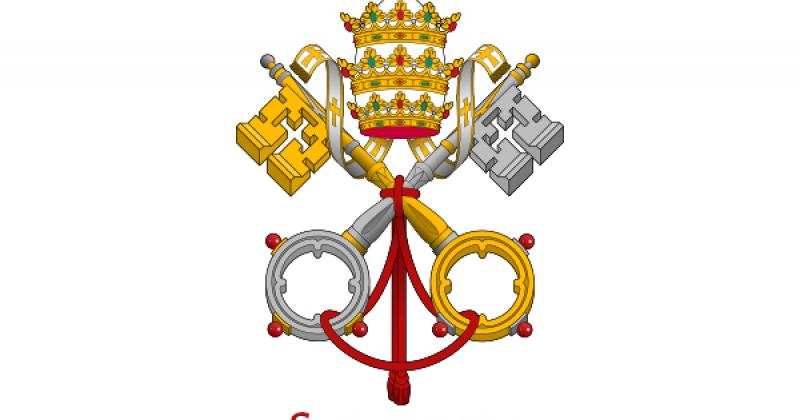Following are the general remarks by H.E. Archbishop Bernardito Auza, Apostolic Nuncio, Permanent Observer of the Holy See to the United Nations, at the Consultations on a United Nations Plan of Action to Safeguard Religious Sites:
New York, 11 June 2019
Mr. High Representative,
The Holy See Delegation would like to thank you for all your efforts in making preliminary consultations, including with religious leaders, in view of today’s meeting to start discussions on a United Nations Plan of Action to safeguard places of worship and other religious sites.
Mr. High Representative,
On December 10 last year, the international community celebrated the seventieth anniversary of the adoption of the Universal Declaration of Human Rights, whose Article 18 affirms that “everyone has the right to freedom of thought, conscience and religion”, and specifies that “this right includes freedom to change his religion or belief, and freedom, either alone or in community with others and in public or private, to manifest his religion or belief in teaching, practice, worship and observance.”
Article 18 of the International Covenant on Civil and Political Rights further specifies that “no one shall be subject to coercion that would impair his freedom to have or to adopt a religion or belief of his choice”, and emphasizes that the “freedom to manifest one’s religion or beliefs may be subject only to such limitations as are prescribed by law and are necessary to protect public safety, order, health or morals or the fundamental rights and freedoms of others”.
Yet, despite this robust legal framework, with the understanding and protection of the right to religious freedom, including religious worship, we continue to witness across the globe an alarming rise of severe acts of intolerance, discrimination, persecution and even genocide, against religious believers on account of the beliefs they hold. More recently, these acts of violence have been frequently perpetrated against believers as they gather to pray in their places of worship, thus transforming havens of peace and serenity into places of destruction, where defenseless individuals lose their lives simply for coming together to practice their religion. We still mourn for the victims of the recent attacks of people in prayer in synagogues in Pittsburgh (Pennsylvania) and Poway (California), in two mosques in Christchurch (New Zealand), in three churches in Sri Lanka and in a number of churches in Burkina Faso.
In this context, a United Nations Plan of Action to safeguard places of worship and other religious sites would be a step in the right direction. The protection of places of worship is a direct consequence of the defense of freedom of thought, conscience and religion. Addressing both governments and believers, Pope Francis and Grand Imam Ahmed Al-Tayyeb have jointly affirmed: “The protection of places of worship – synagogues, churches and mosques – is a duty guaranteed by religions, human values, laws and international agreements. Every attempt to attack places of worship or threaten them by violent assaults, bombings or destruction, is a deviation from the teachings of religions as well as a clear violation of international law.”[1]
My Delegation would therefore expect the Plan of Action to be framed and grounded in the fundamental right to religious freedom and the freedom to practice one’s faith or belief in public, including in places of worship, in peace and security.
We would expect the Plan of Action to condemn not only terrorism in all its forms and expressions, but more specifically to condemn vigorously all attacks against places of worship and other religious sites and the ideologies that drive them which are, of their very nature, totally alien to authentic religious belief.
We would expect it to reaffirm the primary responsibility of States to promote and protect the equality of all citizens before the law, regardless of their religious or ethnic identity. Based on equality of all civil and religious rights and duties, every citizen ought to enjoy equal protection under the law. While the Plan of Action may give recommendations and offer examples of best practices to governments and other constituted authorities, it would have to avoid duplicating, much less supplanting, what States have the primary and sovereign responsibility to do, such as the protection of all their citizens and of all public spaces.
In the same vein, for it to gain the trust and support of religious leaders and communities, whose collaboration would be essential in its implementation, the Plan of Action would have to avoid entering into primarily religious matters which are internal to religions and their respective communities, like their religious teachings, discipline, rituals, and mission.
While we speak about protecting the places of worship, and rightly so, the center of our attention must not only be the protection of buildings but above all the education and formation of persons. Thus, we would expect the Plan of Action to underline the fundamental importance of fostering and practicing a culture of dialogue and encounter, characterized by mutual respect and acceptance, the courage to accept differences, and sincerity of intentions to walk together on a path of human fraternity and cooperation.
An effective Plan of Action would also have to take the delicate and challenging task of appealing to, without alienating, all concerned - religious, social and political leaders alike, indeed, terrorists and radical ideologues as well - “to stop using religions to incite hatred, violence, extremism and blind fanaticism, and to refrain from using the name of God to justify acts of murder, exile, terrorism and oppression.”' [2]
Mr. High Representative,
These principles are enshrined in the Joint Declaration entitled Human Fraternity for World Peace and Living Together that Pope Francis and the Grand Imam Ahmed Al-Tayyeb signed in Abu Dhabi on 4 February 2019. My Delegation believes that this document, which contains principles and values that all believers share in common, could be a useful reference in the elaboration of the United Nations Plan of Action to safeguard places of worship and other religious sites.
Thank you, Mr. High Representative.
